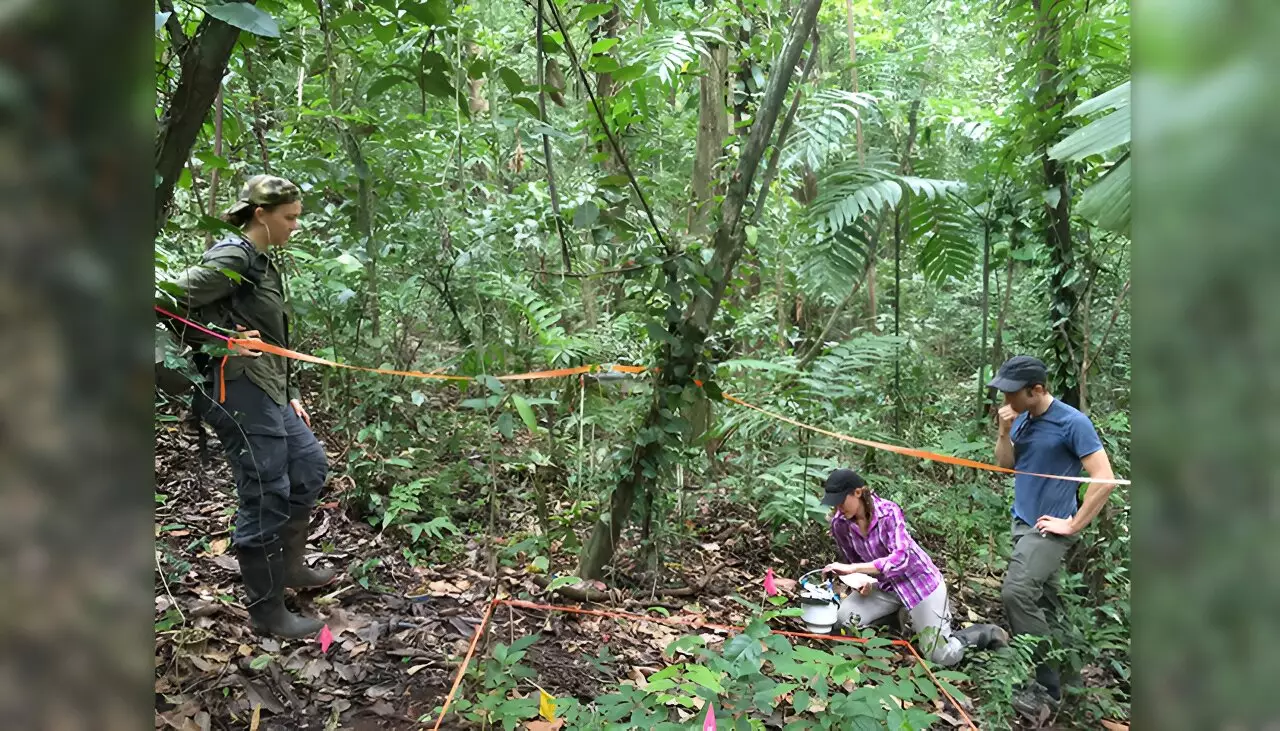Tropical forests are known for their significant role in the global carbon sink, storing nearly one-third of global soil carbon stocks. However, recent research indicates that the warming and drying of tropical forest soils may increase soil carbon vulnerability, leading to the degradation of older carbon. This has the potential to negatively impact carbon storage in these crucial ecosystems under the threat of climate change.
The study, conducted by Lawrence Livermore National Laboratory (LLNL) scientists and collaborators, focuses on the effects of warming and drying on tropical forest soils in Panama. The research reveals that both factors can accelerate the loss of older soil carbon, leading to an increase in the average age of released carbon. Specifically, warming speeds up the decomposition of older carbon by depleting newer carbon, while drying suppresses the decomposition of newer carbon inputs and increases the release of older carbon.
Climate projections indicate that tropical regions will experience both warmer and drier conditions in the future, with increased drought intensity and longer dry seasons. These changes are expected to have significant impacts on tropical ecosystems, particularly in the Neotropics, which include the vast Amazon rainforest. The research findings highlight the potential consequences of these changes on the carbon balance of tropical forests and their feedback on the climate system.
By analyzing carbon-14 values in soil-respired CO2, researchers were able to determine the age of carbon being released from the soil. New or young carbon has been fixed from the atmosphere in recent years, while older decadal to millennial-aged carbon has different carbon-14 values. The study conducted in Panama examined how warming and drying influenced the amount and age of carbon released, providing insights into the mechanisms driving carbon loss in tropical forest soils.
Implications for Ecosystem Carbon Balance
The results of the study suggest that climate warming will stimulate a net loss of global soil carbon to the atmosphere, with potential implications for the overall carbon balance of tropical forests. Previous research has mainly focused on total CO2 flux rates, but the use of carbon-14 analysis provides a more detailed understanding of how warming and drying interact to influence carbon dynamics in these ecosystems. This information is crucial for predicting the future of tropical forest carbon storage under changing climate conditions.
The research highlights the vulnerability of tropical forest soils to climate change-induced warming and drying. The findings suggest that these factors can accelerate the loss of older soil carbon and impact the overall carbon balance of tropical ecosystems. The study underscores the importance of considering both warming and drying effects on soil carbon dynamics in tropical forests to better understand their response to climate change. Further research in this area is essential to inform conservation and management strategies aimed at preserving the vital role of tropical forests in the global carbon cycle.



Leave a Reply